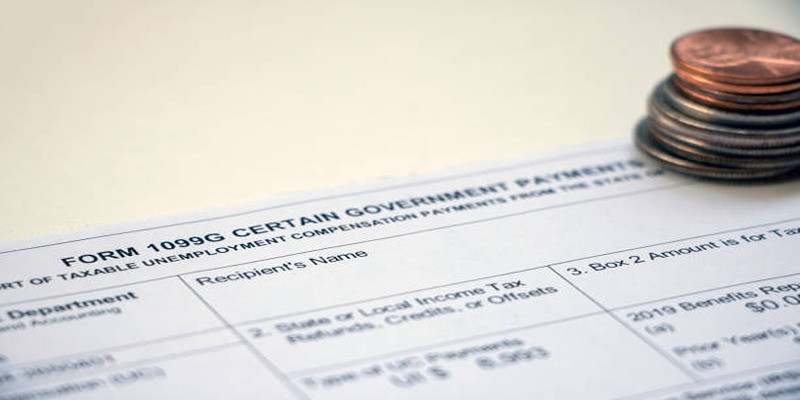What Is Disability Insurance?
Feb 17, 2024 By Susan Kelly
In certain areas, disability insurance is also referred to as disability income insurance. This is because it will pay a portion of your salary if you become ill, wounded, or unable to work. The majority of serious diseases and injuries are covered by disability insurance. To assist you in determining whether or not purchasing disability insurance is something that might be beneficial to you, the following list of situations is provided below.
- Cancer During Pregnancy
- Broken bones
- Challenges to one's mental health
- Hernias
- Musculoskeletal disorders
The specific conditions of contract may change based on the insurance policy you choose; nonetheless, most insurance plans will let you safeguard up to seventy percent of your regular income. This indicates that if you regularly earn $2,400 per month, disability insurance might benefit up to $1,680 per month in the event you become disabled. You are free to put this money to use whatever you see fit.
Pros
Ensures the safety of your earnings
If you get ill or injured and cannot work, disability insurance protects your income and ensures that you can continue to pay your obligations.
Provides reassurance and calmness
The stress of the situation may be reduced significantly if you are certain that you will be able to keep up with your financial obligations if you cannot work while recovering from an illness or injury.
Contributes to the avoidance of difficult financial times
Having disability insurance may assist you in avoiding becoming bankrupt or incurring debt.
Cons
You will bear the cost of individual plans
The premiums for individual disability insurance typically range from one percent to four percent of an individual's yearly salary. Purchasing disability insurance via a group program may often lower premium costs. If it is an option that your company provides, selecting this coverage rather than purchasing individual insurance might result in cost savings for you.
May need a medical exam
Before an insurer approves your policy for disability insurance, you can be required to undergo a paramedical test, which is analogous to a physical examination. Your coverage may be subject to additional restrictions and exclusions as a result of this, depending on the state of your health.
It can be periods during which you get no advantages at all
The "elimination period" is a provision that is included in the majority of disability insurance plans. Following the occurrence of a qualifying sickness or injury, you will have to wait this amount of time before you will be eligible to begin collecting compensation. In the context of long-term disability insurance, it is relatively unusual for elimination periods to last around ninety days. If you do not have a substantial emergency fund established, you will need a strategy to meet your costs until your insurance policy begins paying out claims.

Is Disability Insurance Important?
While it's not hard to convince yourself that you won't ever be disabled by anything, the statistics paint a different picture. According to the Social Security Administration, one in every four people in the United States who are 20 years old will become incapacitated before they reach retirement age.
This is a bleak scenario, but it illustrates the need to consider disability insurance as part of your overall financial planning if you depend on your income for survival. After your resources have been depleted, this kind of insurance might serve as a fallback plan to protect you and your loved ones.
Is Disability Insurance Worth It?
If you are reliant on your salary to cover your day-to-day costs of life, purchasing disability insurance to safeguard that income can make good financial sense for you. It is possible that purchasing short-term disability insurance is not worth it if you already have a sizable emergency fund established. This is because you already have a plan to meet your financial obligations for a certain time.
Your savings for unexpected circumstances won't last forever. In the disability that you become disabled for an extended period, having long-term disability insurance may assist guarantee that you continue to get money. For other individuals, the sense of security that comes from knowing they will still be able to pay their obligations if anything bad occurs to them is enough to justify the expense.

How Much Do You Budget Each Month for Your Disability Insurance Premiums?
If you want to buy a plan alone, you should anticipate spending between 1% and 4% of your yearly income on premiums. Check with your firm first since many companies provide this coverage for their employees at a reduced cost or as part of their overall salary and benefits package.
-
 Mortgages Feb 28, 2024
Mortgages Feb 28, 2024Wintrust Mortgage: An Overview
Beneficial for those purchasing their first house as well as those looking for specialized mortgages such as building loans.
-
 Taxes Oct 04, 2024
Taxes Oct 04, 2024Form 1099-G: Comprehensive Overview of Government Payments
Learn how to read and report IRS Form 1099-G correctly to ensure accurate tax filings and avoid potential penalties. This guide breaks down each key section and explains its tax implications.
-
 Banking Dec 12, 2023
Banking Dec 12, 2023Future of Banks: From The End of Banking
This article shows three reasons why we need banks, namely, solving the problem of information asymmetry in the credit process, matching the different needs of both borrowers and lenders, and facilitating transactions through payment services provided by banks.
-
 Investment Jan 29, 2024
Investment Jan 29, 2024AARP Life Insurance 2024: An Essential Review for Informed Decisions
AARP Life Insurance, offered by New York Life, provides senior-focused policies with no medical exam, flexible coverage options, and exclusive benefits for AARP members. Read more.
